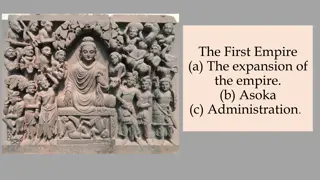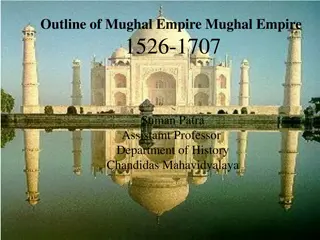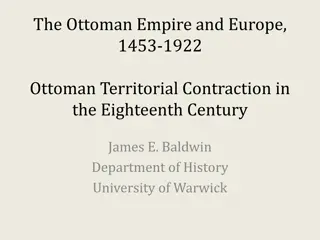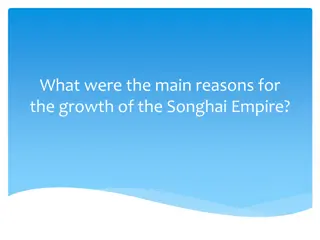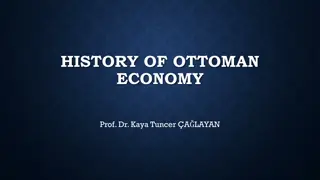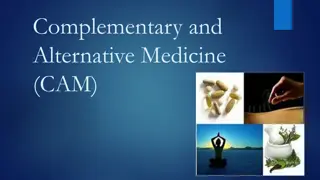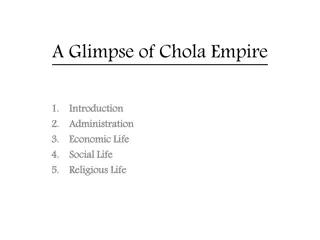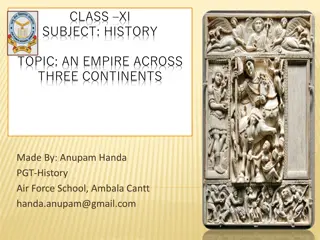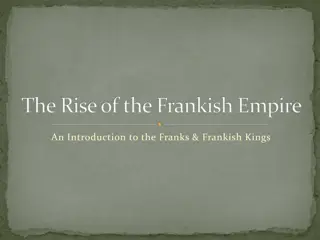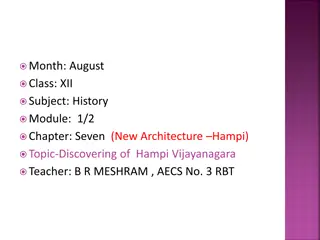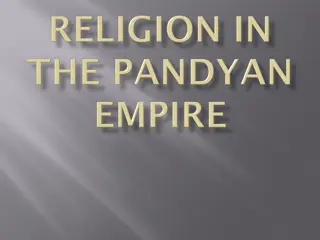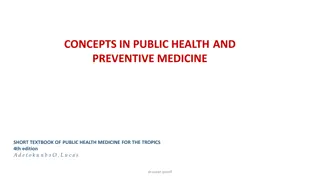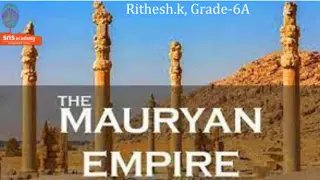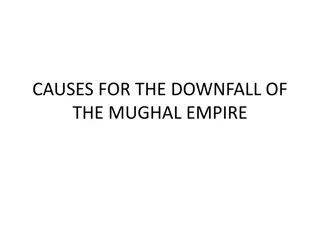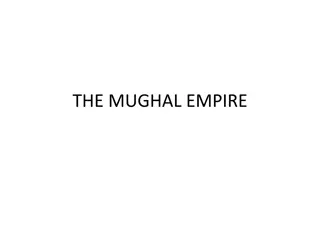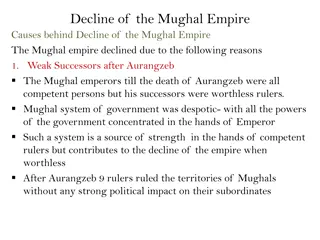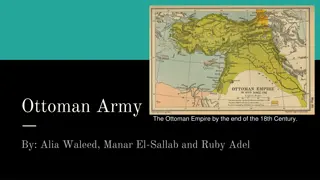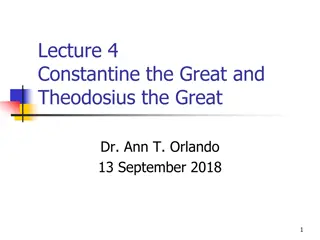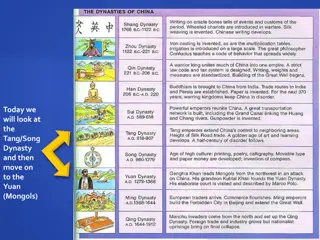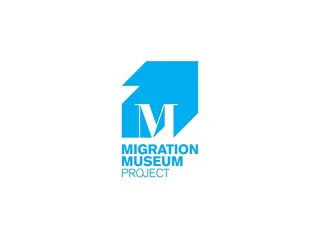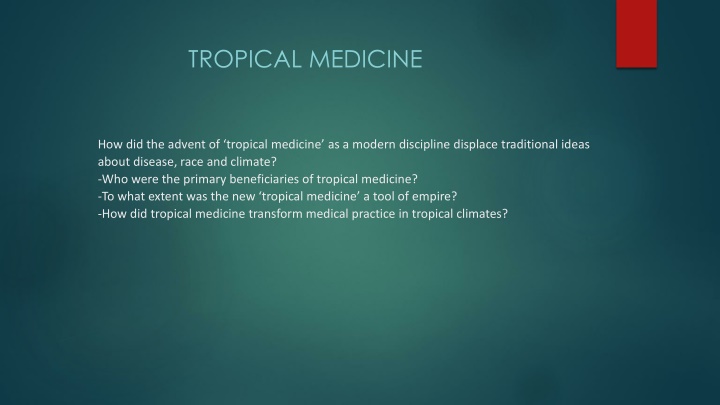
Tropical Medicine and Imperial Health Practices
The advent of tropical medicine as a modern discipline displaced traditional ideas about disease, race, and climate, redefining relationships between the West and the East. Western science investigated the exotic and alien aspects of tropical diseases as it intertwined with colonial aspirations. The beneficiaries were predominantly white men, with women's health often overlooked. Tropical medicine served as a tool of empire, transforming medical practices in tropical climates and reshaping approaches to disease control and eradication.
Download Presentation

Please find below an Image/Link to download the presentation.
The content on the website is provided AS IS for your information and personal use only. It may not be sold, licensed, or shared on other websites without obtaining consent from the author. If you encounter any issues during the download, it is possible that the publisher has removed the file from their server.
You are allowed to download the files provided on this website for personal or commercial use, subject to the condition that they are used lawfully. All files are the property of their respective owners.
The content on the website is provided AS IS for your information and personal use only. It may not be sold, licensed, or shared on other websites without obtaining consent from the author.
E N D
Presentation Transcript
TROPICAL MEDICINE How did the advent of tropical medicine as a modern discipline displace traditional ideas about disease, race and climate? -Who were the primary beneficiaries of tropical medicine? -To what extent was the new tropical medicine a tool of empire? -How did tropical medicine transform medical practice in tropical climates?
Alison Bashford, Is White Australia Possible? Race, Colonialism and Tropical Medicine, Ethnic and Racial Studies 23 (2000), pp.248-271 Tropical medicine was about relations between West and East. it was about what Western medicine had to say about that semi-mythical place, the tropics. The Tropics itself is an idea which stands for hot spaces and also colonial spaces, where white man does not quite fit, but over which white man or white culture desires control. The object of tropical medicine involves much more than the study of parasites and diseases occurring in the tropics; it comprises in its working sphere the welfare and life of the white man under new, and, to him, artificial conditions. Hygienic practices continued to be very much at issue in the between tropical medicine and colonization. The interest of European medicine in diseases of warm climates and in tropical medicine closely followed the various imperial and economic interests around the globe. Physiology for men, sociology and psychological medicine for women. The physiological and biochemical mode of investigation was nowhere near as apparent in the study of white women as it was of white men. reproduction did become part of tropical medicine, it was through the hygienic discourse of maternal and infant welfare. The logic in the very idea of tropical medicine always suggested that Western science was investigating something exotic to itself, something alien and different to white diseases every time tropical medicine was called upon to demonstrate the capacity of white man to colonize the north, the north was reinscribed as tropical, and not really the place for white society. The imperial hygiene of tropical medicine, was, as Cumpston suggested, a mode of colonization
Helen Tilley, Africa as a Living Laboratory: Empire, Development, and the Problem of Scientific Knowledge, 1870-1950(Chicago, 2011), 'Ch. 4: A Medical Laboratory: Infectious Diseases, Ecological Methods, and Modernization,' pp.169-216. These projects turned colonial states into experimental sites for long-term field studies. Kenya and Nigeria were chosen for focused investigations into the nutritional status of nomadic versus sedentary populations. Tropical medicine was structured around the life-cycle of parasites and required detailed knowledge of the taxonomy of vector species and ecological management, which found application in the tropical environment. The second decade of the twentieth century, tropical medicine was shifting gradually away from a linear understanding of disease and what caused them, in which microbes alone were targeted as the culprit, toward a more integrated and comprehensive approach. Early twentieth-century conceptual shifts affect imperial and international confidence in eradication as a control strategy At that time, experts in epidemiology and tropical medicine began to focus more on the site specific city and unique attributes of diseases than on their universal features. In Africa, as elsewhere, much of medical activity in the past has been devoted to the treatment of disease rather than the promotion of health, and there has been a tendency to separate work into categories such as curative medicine, preventive medicine, and other social services. empirical thrust of interwar research, combined with relatively new synthesizing methodologies, rendered old practices and assumptions, if not obsolete
Michael Worboys, The Emergence of Tropical Medicine: A Study in the Establishment of a Scientific Speciality, in Gerard Lemaine (ed), Perspectives on the Emergence of Scientific Disciplines (The Hague, 1976), 76-98. Theories of disease dominant in the eighteenth century were largely concerned with symptoms, rather than causes. Among theories of causation, the 'miasmatic' theory of most prevalent. this supposed that fermentation, putrefaction and disease had much in common, and that diseases arose spontaneously from within the body or from 'unhealthy' environments or bad noxious form of bad air. Highlight a hold to ancient practices from rome. The germ theory of disease, first convincingly demonstrated by Pasteur in the 1860s, had begun to replace theories of disease associated with spontaneous generation and miasmata. Shift to the understanding that the direct causes of 99% of these diseases are germs . To kill them is simply a matter of knowledge and the application of this knowledge. This notion of a 'mature specialty' is implicit in the image of science articulated by Kuhn, who describes two types of science: normal science, characterised by orthodoxy, consensus and tradition, and revolutionary science characterised by incommensurability, schisms and controversy. A belief that the tropics could provide markets for British manufacturers and held very rich and largely undiscovered natural resources which could supply Britain with all its raw material needs. Ross developed the practical implications of his scientific work, seeing malarial control as a matter of reducing the population of mosquitos by destroying or treating their breeding areas. However tropical medicine had not developed as effectively as it could have done. Tropical medicine strikes, and strikes effectively, at the root of the principal difficulty of most of our tropical Colonies disease. It will cheapen government and make it more efficient It will encourage and cheapen commercial enterprise

